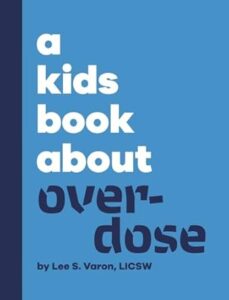Review by Rivkah Lapidus, Ph.D., LMHC, CGP

Stanton Peele’s Diseasing of America is handy, well designed, and clear. Kudos to writing to people at this level, giving them clarity and understanding of a multifaceted problem.
My only quibble is the use of the disease model, which is a controversy in the field of experts.
Many respected scholars and researchers in the field of substance use disorder refer to a bio-psycho-social phenomenon that mimics a disease when it’s full blown but is made of many factors.
What is a disease? Does someone have it from birth, or catch it? Can it go away? Is it caused by a substance, or a psychological deficit, or the world we live in? Is abstinence the only cure?
“Disease” is a useful metaphor and is a great improvement on the idea from previous centuries that users and “insane” people were possessed by the devil. The disease model certainly reduces some of the stigma, but it implies that there is something inherently wrong with the user. Scientists have not identified any gene that causes substance use disorder.
Maybe there is something “wrong” with the world as we find it now. Social setting on a small scale (family and friends) to a global scale (global warming, unchecked violence). Whatever it is it is scary.
The author should say more about harm reduction since she says she uses harm reduction ideas. For example, there are medically assisted treatments, and successful overdose prevention sites in Canada, Portugal, New York City. What other interventions reduce harm and engage people who use substances?
Harm reduction also means providing a safe setting to live in. It means not kicking people out of programs if they have a lapse in dealing with the problem they came to treatment for. It means meeting people where they are at, and providing resources about good treatment as they begin to contemplate making changes.
My last quibble is minor for the purposes of the book, but is interesting. Did you know that the idea of licit and illicit substances change according to the times? Bach wrote The Coffee Cantatas about a young woman who could not marry because she would not give up the evil brew – of coffee! And opioids were legitimate medications for a long time; paragoric was given to teething babies.
Overall, this book is decidedly respectful, not condescending, and is lightyears ahead of the Just Say No programs of the 1980s. It gives power to the helpless bystander. I recommend it young people who want to know what they can do in a scary situation.
There is much that needs to be done in ending stigma, understanding why people choose to “self-medicate,” and supporting the return of an active public health system.
I think everyone should read this book, and if they want to explore the “whys” of how we got here, this is an excellent beginning.
For further reading, I can recommend Stanton Peele’s Love and Addiction and Harm Reduction internet pages for families and friends, and users themselves.
Rivkah has a Ph.D. in Clinical Psychology, and is a licensed psychotherapist. She practices harm reduction psychotherapy, teaches Moderation Management, and employs Narrative Therapy concepts in her work. She has been working with people who use substances almost continually since 1992 in a variety of settings. Her dissertation (2004) focused on compulsive users, non-treatment users (heroin) and non-users.
















Reader Comments